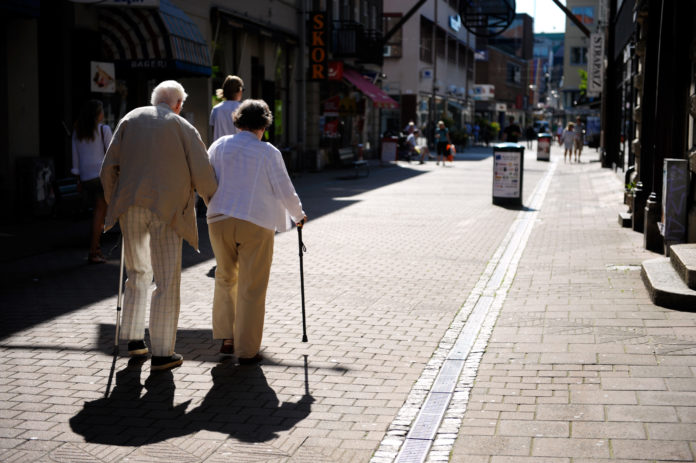If you are ageing and a brisk walk is what keeps you going every day, read on.
 As short as a two-hour exposure to soot and dust found in traffic fumes on busy roads could lead to stiffening of arteries and impaired lung function, especially in older people, a study led by researchers at the Imperial College, London has found. The study, published in The Lancet, strengthens the case to reduce vehicle emissions so that everyone can enjoy the health benefits of physical activity.
As short as a two-hour exposure to soot and dust found in traffic fumes on busy roads could lead to stiffening of arteries and impaired lung function, especially in older people, a study led by researchers at the Imperial College, London has found. The study, published in The Lancet, strengthens the case to reduce vehicle emissions so that everyone can enjoy the health benefits of physical activity.
“Our findings indicate that in traffic congested streets, like London’s Oxford Street, the health benefits of walking do not always outweigh the risk from traffic pollution. However, this should not be seen as a barrier to many older people for whom walking is the only exercise they do. We suggest that, where possible, older adults walk in parks or other green spaces away from busy roads”, says senior author Professor Fan Chung from the National Heart & Lung Institute at Imperial College London, UK. The effect was particularly marked in people with existing respiratory illness.
Air pollution is responsible for around 5.5 million premature deaths worldwide every year. In India, a report recently released by the Centre for Science and Environment (CSE) found that air pollution causes 30% of premature deaths in the country. A state level disease burden report released last month had found that household air pollution is responsible for 5% of the total disease burden and outdoor air pollution for 6%. Research shows that exposure to fine particulate matter (with a diameter of 2.5 micrometers or less; PM2.5) found in diesel exhaust fumes increases the risk of cardiovascular disease and death, and can reduce lung function, particularly in the elderly and those with chronic obstructive pulmonary disease (COPD).
The Lancet study was done in 119 older adults (aged 60 or over) including 40 healthy volunteers, 40 individuals with stable COPD, and 39 with stable ischaemic heart disease. Participants were randomly assigned to spend 2 hours walking along the western end of London’s Oxford Street where traffic is restricted to diesel-powered buses and cabs, or through a traffic-free section of Hyde Park, London.Participants abstained from smoking. Levels of traffic-related air pollutants (black carbon, particulate matter, ultrafine particles, and nitrogen dioxide) and measures of lung function and cardiovascular responses were taken before and during each walk.
In healthy participants, walking in Hyde Park led to an improvement in measures of lung capacity and arterial stiffness that persisted for up to 26 hours. In contrast, walking on Oxford Street led to only a small transient increase in lung capacity, and substantial worsening of arterial stiffness associated with greater exposure to black carbon soot and ultrafine particles from diesel exhaust.
The detrimental health effects of pollution were particularly marked in participants with COPD who experienced a narrowing (obstruction) of the small airways—reporting more respiratory symptoms including cough, sputum production, shortness of breath, and wheeze—and increased arterial stiffness after walking in Oxford Street compared with Hyde Park.


